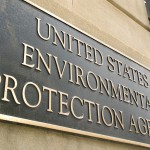UPDATE: The EPA has withdrawn its direct final rule asserting wage garnishment powers after receiving adverse public comments. EPA retains the authority to propose a new rule with a standard notice and comment period.
Perhaps jealous of the air office’s recent carbon power grab, the EPA’s enforcement division is flexing its muscle. It is moving to consolidate its collections powers by granting itself the ability to garnish wages of environmental violators without the traditional court order.
No one accuses EPA enforcement of being weak. It recently fined Wyoming homeowner Andy Johnson $75,000 a day for building a pond on his rural Wyoming property. And the fines it’s collected since 2009 have increased by more than 160 percent to $252 million a year. However, sovereignty over its collections would empower it further, as the threat of more easily garnished wages will incentivize the accused into agreeing to expensive settlements rather than fighting EPA decisions.
More ominously, this authority – espoused under the Debt Collection Improvement Act of 1996 – allows the agency to be judge, jury, and executioner in wage garnishment cases. The move also shifts the burden of proof from the accuser to the accused, who now must prove his or her innocence to avoid wage garnishment.
The rule would have automatically taken effect Sept. 2 if the agency received no adverse comments by Aug 1.





